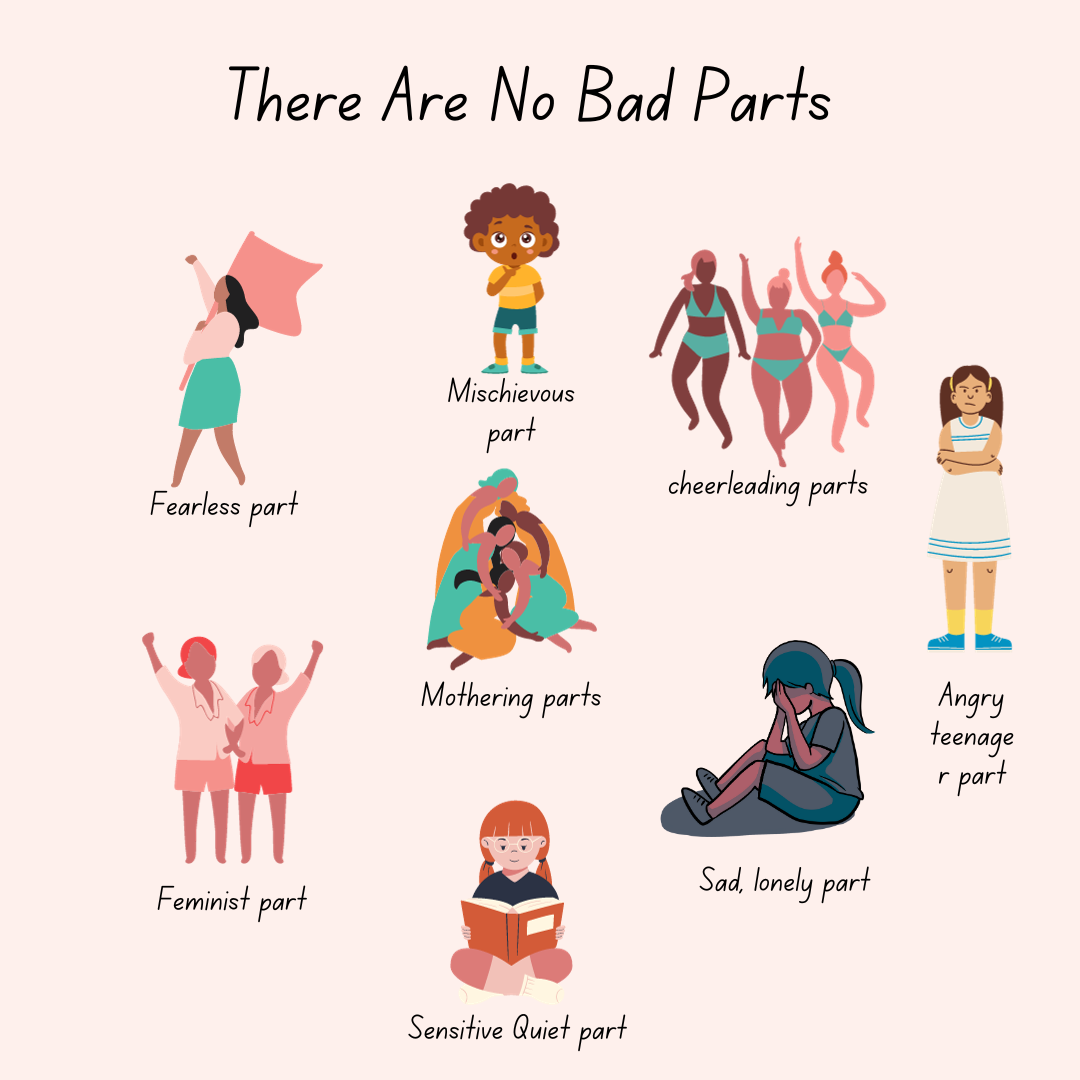Each time you fall back into old patterns, behaviors, or ways of being you might wonder if this will ever end. You might be asking yourself, “Will there be a time when I don’t make the same mistakes, or think the same things, or do the same things?” Will I ever fully heal?”
Making Friends With Your Inner Critic Can Ease Your Anxiety
When you make a mistake, are you overly critical? Do you blame yourself for even the smallest mistakes? That’s your Inner Critic talking. It’s the part of you that wants to point out your faults, to warn you about your potential mistakes in the future and remind you of all your mistakes in the past. It’s the part that expects perfection and won’t accept anything less. It’s the part that believes it can read other people’s minds to know what they’re thinking and feeling about you. Focusing all your attention on your Inner Critic can make you feel really terrible.
Why Do We Believe Our Inner Critic?
On this week’s Woman Worriers podcast, I spoke with Michelle Richardson about Internal Family Systems (IFS), or “parts,” model of therapy. She explained that IFS is based on the idea that each of us has many different parts inside us and they all serve a purpose, although sometimes it’s difficult to figure out just what that purpose is.
Why do we bully ourselves?
So, why are some parts of us so mean and unforgiving? We all have an Inner Critic, but for some of us that critical part is much louder and meaner than it is for others. A loud Inner Critic can make you feel anxious or depressed by telling you that you aren’t living up to others’ expectations. I doubt you would ever be that hard on a friend or family member—or anyone other than yourself.
Many people believe that without their Inner Critic, they’d never get anything done. It’s the part that always reminds them of the things they didn’t do. The reality is, bullying doesn’t make you more productive. In fact, research shows that bullying in the workplace lowers productivity and increases depressive symptoms. Research has also shown that self-criticism goes hand in hand with social phobias and depression. Self-criticism also seems to increase the severity of combat-related post traumatic stress disorder (PTSD), eating disorders and body image issues.
What’s The Purpose Of Our Inner Critic?
So, if our Inner Critic leaves us feeling bad about ourselves and increases the risk of some mental health disorders, can we learn anything from listening to that part of ourselves? Is it possible that the critical part of you come from a place of good intent?
If you approach the Inner Critic from the IFS model, you begin to understand that your critical part is working really hard to protect you from harm. It says all those mean things with the best intentions. It truly believes that it’s helping you.
So how do we get the Inner Critic to quiet down? To be less critical?
Tune In, Get Curious, And Be Compassionate
Tune in. The first step is to really tune into the Inner Critic. Try to draw a mental image of, or actually draw, that part of you. How old does it feel? What does it look like? Does it sound familiar—like a person from your past, a parent or an ex-partner—or like someone currently in your life?
Get curious. As you begin to have a clearer picture of that critical part, the next step is to start noticing, without judgment, how often it shows up. Does it chime in when you make mistakes or when it worries about being judged? Does it tell you to avoid new places and situations? How often is it present? Does it show up once in awhile, or is it a constant stream of negativity?
Ask some questions. You might notice that the critical part hangs around a lot, especially if you’re feeling anxious or depressed. The next time you hear your Inner Critic, here are some questions you can ask to help find out more about it:
“What does my Inner Critic need me to know?”
“What is my Inner Critic afraid might happen?”
“Is there another part that’s showing up?”
You can also explore your parts with creativity too. In episode 55 of the Woman Worriers podcast I talked with Jennifer Wolfe-Hagstrom about using SoulCollage® to explore all of your parts.
Love all your parts
Use compassion and curiosity. As you take time to listen, see if you can be compassionate, present and curious. Would you like to ask that part some other questions? Each time your critical part answers a question, let your Inner Critic know that you heard what it said.
You’ll probably learn that your critical part is reacting from deep-seated fears. It’s trying to protect you from future harm. It wants to keep you safe. It wants to protect other parts of you from getting hurt. When you learn that the critical part wants to protect you and your wounded parts, you may feel less likely to tell it to shut up and leave you alone. You might even begin to feel some compassion for the critical part because it’s always responding from fear, and it works really hard.
Listen and respond. As you become more familiar with when and how your critical parts show up, you can start responding differently. You can take a deep breath and say something like, “I hear you. I know you’re worried that I’ll make a mistake or get hurt by others. Thank you for worrying about me. Can you step aside while I decide what I’m going to do?” You’re telling that part that you hear it. With compassion, your more grounded self is asking your critical part to trust you to take care of it and all your other parts.
Talking to your Inner Critic takes a lot of practice. I bet that part has had your ear for a long, long time. With practice, you’ll find it’s easier to notice when it shows up and easier to get it to calm down as you try new things and maybe even have fun doing them!
If you enjoyed this blog post and would like more insights into living with anxiety, tune into the Woman Worriers podcast. In each weekly 30-minute episode, host Elizabeth Cush, LCPC, and her guests explore living with anxiety, relationships, parenting, surviving trauma and other topics and offer insights into mindfulness, meditation and other helpful resources.
Elizabeth Cush, LCPC is a therapist, blogger, creator and host of the Woman Worriers podcast, and the owner of Progression Counseling in Annapolis, Md and she’s been featured in these major publications. Elizabeth helps busy, overwhelmed men and women manage their anxiety and stress so they can live their lives with more ease, contentment and purpose. If you'd like to know more about how individual, online and group therapy can help ease anxiety and stress call me 410-339-1979.





